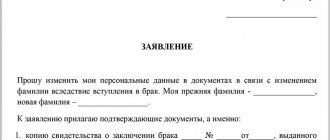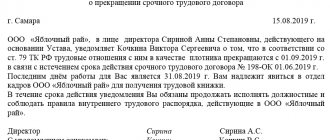Who is the director
Regardless of what company the director heads - a small company or a large organization - he is the sole executive body of the legal entity . The position may be called differently, but this does not change the essence. A small company is headed by a director or CEO, while a corporation may have a president. Moreover, there may be several directors: financial, commercial, and so on. But there is always one main person to whom all other leaders report. Most often this is the CEO.
Nuances of the agreement with the manager
Whatever the name of the position, from the employer’s point of view, the manager is the same hired person as other employees. Therefore, the provisions of the employment contract with the director, in general, do not differ too much from the agreement with persons occupying other positions. But still there are some peculiarities.
Only an organization can enter into an agreement with the director . This means that an individual cannot hire a director. That is, there is no such thing as “director of an individual entrepreneur,” since this is not a form of organization, but the status of an individual. The main manager and responsible person in his business is the entrepreneur himself.
When drawing up an agreement with the director, you should be guided by the norms of the Labor Code, legislative acts of the Russian Federation and your region, as well as internal documents of the company. The agreement is drawn up in writing and signed on the part of the employer by the founder (if there is one) or the head of the general meeting of shareholders (owners).
Like any employment contract, the agreement with the director must include a number of mandatory provisions :
- date and place of his imprisonment;
- job title;
- job description;
- information about wages and compensation due to the manager;
- information about the probationary period;
- details of the employing organization and passport details of the director.
Note! A probationary period is applied only if the condition for its existence is specified in the employment contract.
But there are special clauses that should appear in the contract with the director, unlike other employees:
- provision on trade secrets and what penalties will arise if they are disclosed;
- provision for compensation in the event of termination of employment relations with the manager (this amount cannot be less than 3 months’ earnings);
- if the director's salary exceeds a quarter of the value of the organization's assets, the contract must be approved by the advisory body.
But the provision that the director bears financial responsibility is not at all necessary in the contract. The fact is that this responsibility arises by force of law, regardless of whether these provisions are spelled out in the contract or not.
Employment contract with the director
EMPLOYMENT AGREEMENT with the Director
_____________ "____" ____________ Limited Liability Company "_____________" (OGRN ___________, INN/KPP _________________, hereinafter referred to as the "Company", represented by the Founder - citizen of the Russian Federation - _________________, on the one hand, and _____________________, referred to hereinafter “Employee”, on the other hand, have entered into this agreement as follows (hereinafter referred to as the Agreement):
1. SUBJECT OF THE EMPLOYMENT AGREEMENT 1.1. The employee is appointed to the position of the sole executive body of the Company - Director of the Company on the basis of the Decision of the sole participant of the Limited Liability Company "_____________________" No. __ dated ____________ 1.2. The work under this agreement is not the main / not the main one for the Employee (underline as appropriate). 1.3. The employee is given a probationary period of 3 months. 1.4. The employee is obliged to start work from “___” _____________— d. 1.5. This employment contract comes into force from the moment it is signed by both parties. 1.6. The employment contract is fixed-term and is concluded for a period of 5 (Five) years.
2. OBLIGATIONS OF THE PARTIES 2.1. The Company entrusts, and the Employee assumes, management of the current activities of the Company for the period of validity of this agreement. 2.2. The employee independently resolves all issues of the Company’s activities that fall within his competence by this agreement, the Company’s constituent documents, job descriptions, decisions of the Company’s management bodies, as well as the current legislation of the Russian Federation. 2.3. The employee is accountable to the highest management body of the Company - the only Member of the Company. In the event of an increase in the number of participants, the Employee is accountable to the General Meeting of the Founders of the company. In the cases provided for in clause 8.1 of this Agreement, as well as the current legislation of the Russian Federation, the Employee may be dismissed from his position by decision of the highest body of the Company. 2.4. The employee is obliged to perform the following job responsibilities: - manage, in accordance with the current legislation of the Russian Federation, the production, economic and financial-economic activities of the Company, bearing full responsibility for the consequences of decisions made, the safety and effective use of the Company’s property, as well as the financial and economic results of its activities; — organize the work and effective interaction of all structural divisions, workshops and production units, direct their activities towards the development and improvement of production, taking into account social and market priorities, increasing the efficiency of the Company, increasing sales volumes and increasing profits, quality and competitiveness of manufactured products, its compliance with international standards in order to conquer the domestic and foreign markets and meet the needs of the population for relevant types of domestic products; — ensure that the Company fulfills all obligations to the federal, regional and local budgets, state extra-budgetary funds, suppliers, customers and creditors, including bank institutions, as well as economic and labor contracts and business plans; — organize production and economic activities based on the widespread use of the latest equipment and technology, progressive forms of management and labor organization, scientifically based standards of material, financial and labor costs, studying market conditions and best practices (domestic and foreign) in order to fully improve the technical level and quality of products (services), economic efficiency of their production, rational use of production reserves and economical use of all types of resources; — take measures to provide the Company with qualified personnel, rational use and development of their professional knowledge and experience, creation of safe and favorable working conditions for life and health, compliance with environmental protection legislation; - ensure the correct combination of economic and administrative methods of management, unity of command and collegiality in the discussion and resolution of issues, material and moral incentives for increasing production efficiency, application of the principle of material interest and responsibility of each employee for the work assigned to him and the results of the work of the entire team, payment of wages as established deadlines; — together with the workforce and trade union organization, ensure, based on the principles of social partnership, the development, conclusion and implementation of a collective agreement, compliance with labor and production discipline; — resolve issues related to the financial, economic and production activities of the Company, within the limits of the rights granted to it by law, entrust the management of certain areas of activity to other officials - deputy directors, heads of production units and branches of the Company, as well as functional and production divisions; — ensure compliance with the rule of law in the activities of the Company and the implementation of its economic relations, the use of legal means for financial management and functioning in market conditions, strengthening contractual and financial discipline, regulating social and labor relations, ensuring the investment attractiveness of the Company in order to maintain and expand the scale of entrepreneurial activity activities. Perform all necessary actions to protect the property interests of the Company in court, arbitration, and government bodies. 2.5. The employee has the right: - to act on behalf of the Company without a power of attorney; — represent the interests of the Company in all domestic and foreign organizations; — dispose of the property and funds of the Company within the limits established by the constituent documents of the Company and the current legislation of the Russian Federation; — approve the rules, procedures and other internal documents of the Company, determine the organizational structure of the Company, with the exception of documents approved by the General Meeting of the Company; — issue orders and give instructions that are binding on all employees of the Company; — approve the staffing table of the Company, branches and representative offices; — hire and fire employees, including appointing and dismissing their deputies, chief accountant, heads of departments, branches and representative offices; — encourage the Company’s employees, as well as impose penalties on them; — open settlement, currency and other accounts of the Company in banks, enter into agreements and make other transactions; — approve contract prices for products and tariffs for services; — organize accounting and reporting; — submit the annual report and balance sheet of the Company for approval by the management bodies; — organize the preparation and holding of General Meetings of the Company; — preside over meetings of the executive body of the Company; — sign outgoing and payment documents; — exercise other powers within its competence. 2.6. The employee is also obliged to: - comply with the terms of this agreement, the provisions of the constituent documents of the Company, as well as the current legislation of the Russian Federation; — ensure compliance with the Company’s economic activity indicators; — carry out day-to-day management of the Company’s activities; — control the work and ensure effective interaction of departments and other services of the Company; — insure property; — take measures to eliminate the causes and conditions that may lead to a conflict situation in the team; — organize compliance with labor discipline and safety regulations; — properly organize the work of employees; — create conditions for increased labor productivity; — improve the working and living conditions of workers; — provide reports on its activities at the request of the executive body, as well as submit an annual report on its activities at each annual General Meeting of the Company; — observe the Company’s commercial secrets and take measures to ensure its protection, in connection with which he is obliged not to give interviews, not to hold meetings and negotiations related to the activities of the Company, without the permission of its management; — ensure timely payment of taxes in the manner and amount determined by the legislation of the Russian Federation; — organize the keeping of minutes of meetings of the executive body of the Company and unimpeded access to them for members of the Society; - Perform other duties within their competence. 2.7. The employee is obliged to comply with the internal labor regulations established by the Company, production and financial discipline, and conscientiously perform his job duties specified in clause 2.4 of this employment contract. 2.8. The Company undertakes: 2.8.1. Provide the Employee with work in accordance with the terms of this employment contract. The Company has the right to require the Employee to perform duties (work) not stipulated by this employment contract only in cases provided for by the labor legislation of the Russian Federation. 2.8.2. Ensure safe working conditions in accordance with the requirements of safety regulations and labor legislation of the Russian Federation. 2.8.3. Pay bonuses and remunerations in the manner and on the terms established by the Company, provide financial assistance taking into account the assessment of the Employee’s personal labor participation in the work of the Company in the manner established by the Regulations on remuneration in the Company and other local acts of the Company. 2.8.4. Carry out compulsory social insurance for the Employee in accordance with the current legislation of the Russian Federation. 2.8.5. To pay, in case of production necessity, for the purpose of improving the qualifications of the Employee for his training. 2.8.6. Familiarize the Employee with labor protection requirements and internal labor regulations. 2.9. The Company has the right: 2.9.1. Terminate the contract with the Employee in the manner and under the conditions established by the current legislation of the Russian Federation. 2.9.2. Encourage the Employee for conscientious and effective work. 2.9.3. Demand that the Employee fulfill his job duties and take care of the property of the Company and other employees, and comply with the Company’s internal labor regulations. 2.9.4. Bring the Employee to disciplinary and financial liability in the manner established by the current legislation of the Russian Federation. 2.9.5. Adopt local regulations.
3. CONDITIONS OF PAYMENT FOR THE EMPLOYEE 3.1. For the performance of labor duties, the Employee is set an official salary in the amount of ________________ (_________________________________) rubles per month. 3.2. The Employee's wages are paid by issuing cash at the Company's cash desk or by transferring to the Employee's bank account. 3.3. Deductions may be made from the Employee's salary in cases provided for by the legislation of the Russian Federation.
4. WORKING TIME AND REST TIME REGIME 4.1. The employee has a five-day work week with two days off - Saturday and Sunday. 4.2. The employee is granted annual paid leave of 28 calendar days. The right to use vacation for the first year of work arises for the Employee after six months of his continuous work in this Company. By agreement of the parties, paid leave may be provided to the Employee before the expiration of six months. 4.3. For family reasons and other valid reasons, the Employee, based on his written application, may be granted leave without pay for the duration established by the labor legislation of the Russian Federation and the Internal Labor Regulations.
5. EMPLOYEE SOCIAL INSURANCE 5.1. The employee is subject to social insurance in the manner and under the conditions established by the current legislation of the Russian Federation.
6. GUARANTEES AND COMPENSATIONS 6.1. During the period of validity of this agreement, the Employee is subject to all guarantees and compensations provided for by the labor legislation of the Russian Federation, local regulations of the Company and this Agreement.
7. RESPONSIBILITY OF THE PARTIES 7.1. In case of non-fulfillment or improper fulfillment by the Employee of his duties specified in this agreement, violation of labor legislation, the Company’s internal labor regulations, other local regulations of the Company, as well as causing material damage to the Company, he bears disciplinary, material and other liability in accordance with the labor legislation of the Russian Federation. 7.2. The Company bears financial and other liability to the Employee in accordance with the current legislation of the Russian Federation. 7.3. In cases provided for by law, the Company is obliged to compensate the Employee for moral damage caused by unlawful actions and (or) inaction of the Company.
8. TERMINATION OF THE AGREEMENT 8.1. This employment contract may be terminated by decision of the highest body of the Company, as well as on the grounds provided for by the current labor legislation of the Russian Federation. 8.2. The day of termination of the employment contract in all cases is the Employee’s last day of work, with the exception of cases where the Employee did not actually work, but retained his place of work (position).
9. FINAL PROVISIONS 9.1. The terms of this employment contract are confidential and are not subject to disclosure. 9.2. The terms of this employment contract are legally binding on the parties from the moment it is signed by the parties. All changes and additions to this employment contract are formalized by a bilateral written agreement. 9.3. Disputes between the parties arising during the execution of an employment contract are considered in the manner established by the current legislation of the Russian Federation. 9.4. In all other respects that are not provided for in this employment contract, the parties are guided by the legislation of the Russian Federation governing labor relations. 9.5. The Agreement is drawn up in two copies having equal legal force, one of which is kept by the Company, and the other by the Employee.
10. DETAILS OF THE PARTIES 10.1. Company: Limited Liability Company “_________________________” _____________________________________ OGRN ____________, INN/KPP _______________
10.2. Employee: ___________________ (passport ____ No. _________, issued by the department for the district __________ park of the Federal Migration Service of Russia in the city ___________ in the South-Eastern Administrative District ___________, subdivision code _______), registered at the address: ___________________________________.
11. SIGNATURES OF THE PARTIES
Society: Employee:
__________________/ _______________ ___________________/__________________
M.P.
Who chooses the director
A candidate for the position of director is selected or appointed depending on the form of ownership of the legal entity. The Labor Code provides several methods for electing/appointing a manager:
- Conducting a competition . This option is mandatory for state and municipal unitary enterprises.
- Election at a meeting of members or the Board of Directors. Suitable for commercial organizations where there are several participants or a collegial board.
- Appointment by the founder. This is how the candidacy of a director in an LLC with one participant is determined. Quite often in this case, the founder appoints himself as director, but another person can also be hired.
At the same time, the Code does not contain a closed list of procedures, that is, the director can be appointed in some other way.
Appointment and reception
The general director of the company is elected by the general meeting of its founders (participants). In a number of cases, if the issue of appointment or dismissal of a manager (sole executive body) is within the competence of the board of directors, the board of directors. The owners can appoint a person to this position either from among themselves or from outside. The employer in relation to the employee - general director is the organization represented by one of its participants (founders), an employment agreement (contract) is drawn up. It includes all mandatory and additional conditions provided for by the Labor Code (including remuneration - the size of the employee’s tariff rate or salary, additional payments, allowances and incentive payments), taking into account the peculiarities of the work of managers provided for in Chapter 43 of the Labor Code.
First, the corresponding decision (minutes) of the general meeting of participants or the board of directors is drawn up. Then an employment contract is signed with the manager.
In an LLC, an employment contract with the manager can be signed by:
- the person presiding over the general meeting of the company's participants at which the manager was elected;
- a member of the company authorized by the decision of such a meeting;
- Chairman of the Board of Directors (Supervisory Board);
- a person authorized by a decision of the board of directors (supervisory board) of the company (clause 1 of article 40 of the Law of February 8, 1998 No. 14-FZ).
On behalf of the JSC, the employment contract is signed by the chairman of the board of directors (supervisory board) or a person authorized by this board (clause 3 of article 69 of the Law of December 26, 1995 No. 208-FZ), as well as the sole shareholder or another person authorized by him.
An employment contract with a manager is usually concluded for a fixed-term period. Its validity period is determined by the constituent documents of the organization or by agreement of the parties (Part 1 of Article 275 of the Labor Code of the Russian Federation).
Based on the decision of the authorized body and the employment contract, the manager (or another authorized person from among the participants, the board of directors) issues an order to take office (or begin to perform the duties of a manager).
An entry about the appointment is made in the manager’s work book. Column 4 makes reference to the decision of the general meeting or the order to take office (letter of Rostrud dated September 22, 2010 No. 2894-6-1). A personal card is also issued for the elected leader.
For what period is the contract concluded?
Typically, an employment contract is for an indefinite period - this applies not only to the director. Only employment agreements that are temporary in nature have a term. For example, when a specialist is hired to replace an employee who has been absent for a long time. In this case, the period is determined by agreement of the parties and in accordance with the constituent documents of the employer. The contract must indicate why it is urgent. The maximum period for which a fixed-term employment contract can be concluded is 5 years.
Extension of powers
A fixed-term employment contract is concluded with the general director. The validity period of the employment contract is determined by the constituent documents of the organization or by agreement of the parties (Article 275 of the Labor Code of the Russian Federation). Before concluding an employment contract with the head of the organization, an election procedure may be carried out. For example, the general director of an LLC is elected by the general meeting of the company's participants or the board of directors (clause 4, clause 2, article 33 of the Law of February 8, 1998 No. 14-FZ “On Limited Liability Companies”).
The decision of the general meeting of participants or the board of directors of the company to elect a general director, documented in the minutes, is the basis for concluding an employment contract with him. Therefore, in the same minutes of the general meeting of participants or the board of directors, it is necessary to reflect the fact of termination of the powers of the general director due to the expiration of the employment contract and the decision made on his election for a new term.
note
When the general director is elected for another term, a new fixed-term employment contract is concluded with him. In this case, it is necessary to make a record of dismissal and a record of hiring in the employee’s work book (letter of Rostrud dated December 8, 2008 No. 27426-1).
About the peculiarities of labor relations if the head of an organization (LLC) is its sole founder, read in Berator “STS in practice”
Responsibility
The director, as a person making management decisions, bears financial responsibility. This is regulated by Article 277 of the Labor Code of the Russian Federation. There are no requirements to specify the corresponding provisions in the contract, but for information they can be included in it. Liability arises regardless of the presence of such provisions in the employment contract or the conclusion of an additional agreement on financial liability with the director. It occurs for damage or theft, as well as for losses caused by the actions or inaction of the manager.
Can the founder enter into an agreement with himself?
Very often the question arises of how to formalize the appointment of a director if he is the only founder. The legislation does not give a clear answer. There are no rules that would allow or prohibit this approach, so the issue is decided by the founder himself.
Let us note that the Ministry of Finance considers concluding an agreement with oneself to be unlawful (letter dated March 15, 2016 No. 03-11-11/14234). Officials explain that if the director and the founder are the same person, the fact of appointment must be formalized by the decision of the sole founder. But letters from the Ministry of Finance, as is known, are not legal acts, so the department’s opinion cannot be recognized as the unequivocally correct answer.
There are two points of view:
- The Labor Code does not say that labor legislation does not apply to relationships with the head of the organization. This means that an employment contract must be concluded with the director. After all, for an employer, a director is almost the same employee as everyone else. This means that a fine may be imposed for the lack of agreement during labor inspections. Conclusion: despite the opinion of the Ministry of Finance, it is safer to enter into an agreement with yourself . In this case, the person signs both on behalf of the founder and on behalf of the director.
- A contract with oneself has no meaning and is invalid. If the founder and director are the same person, then there is no need to conclude an employment contract. Moreover, payment of wages in accordance with such an agreement may be regarded as unreasonable expenses.
What to do? The safest option is to enter into an agreement with the director, but not include the costs of his salary in the income tax base.
Brief content of the employment contract with the manager
Let's analyze the content of a standard open-ended agreement with the general director of an LLC or JSC, paying attention to the most important information.
Contract header.
The contract contains the following information:
- city in which the company is registered;
- Date of preparation;
- company name;
- FULL NAME. employee and employer representative;
- number and date of adoption of the protocol or decision on the basis of which the founder or his representative receives signing rights.
Subject of the agreement.
When describing the subject of the contract, if the main job is as a manager of the company, indicate whether the employee has the right to work part-time in other companies or whether he has no right to hold other positions. The sample formulates permission or prohibition to occupy other positions: the permission in the sample is underlined in green, the prohibition in red.
A clause on non-disclosure of commercial or other protected secrets is also necessary (underlined in red in the sample). If you are concluding a fixed-term contract, indicate the specific validity period of the TD. Typically, fixed-term contracts are concluded with management for 5 years; open-ended agreements are rare. It all depends on the provisions enshrined in the organization’s charter.
Responsibilities and rights of the parties.
Pay attention to the indication of the employee’s subordination: to which body he is obliged to report.
The manager's job responsibilities include many points; ensuring the legality of the company's activities when carrying out business relations is one of the primary tasks.
The employee's rights are also listed in the agreement. Basic:
Don't forget to include in the contract the employee's obligation to comply with discipline and safety rules. The employer's responsibilities to familiarize the employee with labor protection requirements and ensure production safety are also prescribed.
The main right of the employer remains the opportunity to terminate the contract with the general director in cases provided for by law.
- the right to represent the interests of the company and sign documents without a power of attorney;
- dispose of the company’s property within the limits established by the charter;
- open bank accounts and make transactions.
Insurance and guarantees.
The document includes information about social insurance, guarantees and compensation for the employee.
Terms of payment.
The terms of remuneration are an important information block of the agreement. Set your salary, bonus, and additional payment for additional workload. Please indicate how the salary is paid - in cash at the cash desk or by transfer to a bank account.
Work and rest schedule.
Information about working hours, rest, provision of vacation and the number of days thereof.
Final part.
In the final part, indicate the confidential nature of the terms of the agreement and the moment of entry into force.
Features of an agreement with a director in a state organization
When applying for a job as a director of a government institution, he, like any employee, must
- obtain a passport, work book and tax identification number. In addition, he must submit: a certificate of his own income and property;
- a similar certificate regarding the income and property of the spouse and minor children.
Certificates are submitted at the time of hiring and are updated annually.
You should know that a contract with the head of a state organization must be concluded according to the standard form from Government Decree No. 329 of April 12, 2013. But an employment agreement with the director of a commercial company can be developed independently - there is no standard form provided.
Dismissal of the director
So, the director is a difficult worker. Moreover, the company cannot function without it. However, he can be dismissed on general grounds, like any other employee of the organization. Moreover, Article 278 of the Labor Code of the Russian Federation provides additional grounds for dismissal of a director :
- in accordance with the requirements of bankruptcy legislation (the director is dismissed due to removal from office);
- in accordance with the decision of the owners or authorized body of the organization; on other grounds specified in the employment contract.
However, there are cases when a director cannot be fired . However, this applies to any employee of the organization. All such situations are somehow related to children. You cannot fire:
- a woman during pregnancy;
- a woman with a child under three years of age;
- single mother of a child under 14 years of age or a disabled child under 18 years of age;
- another person who is raising a child under 14 years of age or a disabled child under 18 years of age without a mother;
- a person who is the sole breadwinner of a child under 3 years of age, if there are three or more children in the family, or a disabled person under 18 years of age.
This does not mean that the persons mentioned cannot be fired. For this, there are special grounds for their dismissal, provided for in Articles 81 and 336 of the Labor Code of the Russian Federation.
An employment contract cannot be terminated if the employee is on vacation or sick leave. The exception is the liquidation of the company.








